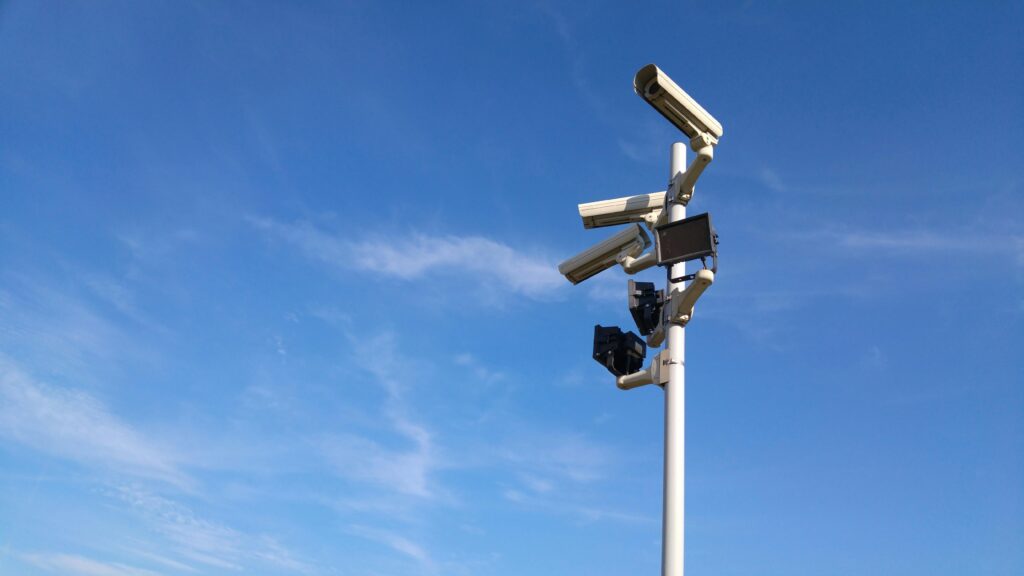Surveillance cameras are now an essential part of modern security systems, whether for homes or businesses. But when it comes to choosing the right cameras for either a residential or commercial setting, it’s important to know that these two types of surveillance cameras are designed with different needs in mind.
Why the Difference Matters
When you think about surveillance cameras Adelaide, you might picture something similar for both home and business use. However, there are key distinctions between the two, and these can affect everything from the quality of the footage to the ease of installation. Residential cameras typically focus on capturing clear footage of a smaller area, such as the front door or the back garden, while commercial cameras are built to handle larger spaces with a wider range of activity to monitor.
1. Camera Coverage Area: Residential vs. Commercial Needs
For residential properties, surveillance cameras are often focused on specific entry points, like the front door, driveway, or backyard. These areas are typically smaller and require cameras that provide clear, high-definition images within a limited scope.
On the other hand, commercial cameras are designed to cover larger areas such as parking lots, entrances, lobbies, hallways, and sometimes even expansive warehouses. With larger coverage areas to monitor, these cameras often have features like zoom capabilities and the ability to capture a wider field of view. It’s not uncommon for commercial systems to include multiple cameras working together to cover different angles or even entire buildings.
Residential Cameras – Smaller areas, focused on key entry points
Commercial Cameras – Larger coverage, multiple cameras for different areas
2. Video Quality and Resolution
When it comes to video quality, both residential and commercial cameras offer various options, but the resolution can differ. Residential cameras typically offer a resolution of 1080p, which is perfectly sufficient for smaller areas and occasional activity.
Commercial cameras, however, often offer higher resolution options, such as 4K, as well as more advanced features like thermal imaging or infrared night vision. These features help businesses monitor large areas with greater clarity, even in low-light environments. High-definition video is crucial for capturing fine details like faces or vehicle registration plates, which can be important in a commercial setting.
Residential Cameras – 1080p is often enough for smaller areas
Commercial Cameras – Higher resolutions like 4K, advanced features for detailed monitoring
3. Storage and Data Management
Storing surveillance footage can become a bit tricky, especially when you’re dealing with a large amount of data. Residential systems often use cloud storage or local storage solutions such as SD cards or hard drives, which are enough for a few days’ worth of footage. These systems typically have shorter video retention periods, as homeowners don’t usually need to store footage for long periods.
In contrast, commercial surveillance systems usually require much more storage capacity due to the large volume of footage generated by numerous cameras. They often use dedicated servers or cloud-based solutions designed to manage vast amounts of data efficiently. Businesses may need to store footage for weeks or months, and ensuring that the system can handle this is crucial for maintaining security records.
Residential Cameras – Cloud or local storage for limited footage
Commercial Cameras – Larger storage systems with longer video retention
4. Durability and Weather Resistance
Surveillance cameras installed outside need to be weather-resistant, but the level of durability can vary. Residential cameras are generally designed for typical home environments, with weather-resistant features that can handle light rain or snow.
Commercial-grade cameras, on the other hand, are built to withstand more extreme conditions. Businesses often need cameras that can tolerate harsh weather, direct sunlight, or even vandalism. As a result, commercial cameras are usually housed in tougher, more durable enclosures that offer enhanced weatherproofing and protection against physical damage.
Residential Cameras – Suitable for mild weather conditions
Commercial Cameras – Heavy-duty enclosures for extreme weather and potential tampering
5. Ease of Installation
Residential security cameras are designed to be more DIY-friendly. Many home surveillance systems come with easy-to-follow instructions and can be set up without professional help. These systems are made to be user-friendly, with apps and online portals that allow homeowners to monitor their property from their smartphones or computers.
Commercial cameras, however, are typically more complex and may require professional installation. The setup can involve integrating with larger security systems, such as alarm systems or access control devices, and ensuring that all cameras are correctly positioned for optimal coverage. For larger businesses, professional installation ensures that the system is configured properly and that it meets all security requirements.
Residential Cameras – Easy DIY installation
Commercial Cameras – Professional installation for more complex setups
6. Price Difference: What Are You Paying For?
Residential security systems are generally more affordable, especially if you’re only installing a few cameras to cover your home. These cameras are designed to provide a cost-effective solution for homeowners who want reliable security without breaking the bank.
Commercial surveillance systems, however, are often more expensive due to their higher-quality components, advanced features, and the sheer number of cameras required. Businesses also need to factor in the cost of professional installation and ongoing maintenance, making commercial systems a more significant investment. However, this investment provides businesses with a more comprehensive and long-term security solution.
Residential Cameras – Budget-friendly for home use
Commercial Cameras – Higher investment, but with more advanced features and coverage
Choosing the Right System for You
Now that we’ve covered the key differences between residential and commercial surveillance cameras, it’s clear that the right choice depends on your needs. Residential cameras are perfect for smaller areas and provide a simple, effective way to secure your home. However, if you’re managing a commercial property, you’ll need to consider larger coverage areas, higher-resolution cameras, more robust storage solutions, and better durability to handle tougher environments.
Securing Your Property the Right Way
Whether you’re protecting your home or a business, it’s essential to pick the right surveillance system that fits your needs and budget.
With so many options out there, it’s worth taking the time to evaluate your priorities. Do you need high-definition video to identify faces or vehicles? Are you looking for weatherproof systems that can handle tough conditions? Answering these questions will help guide your decision.

